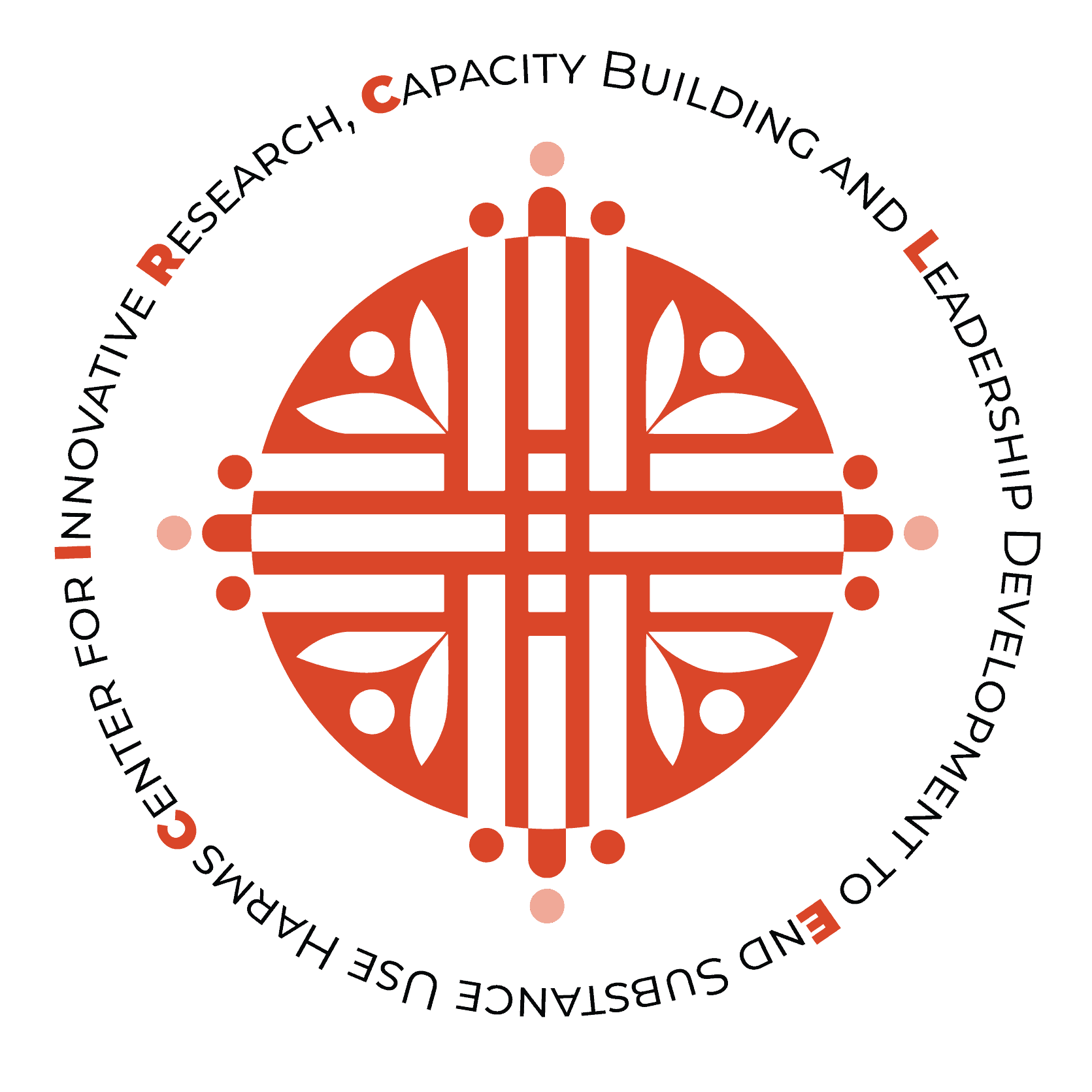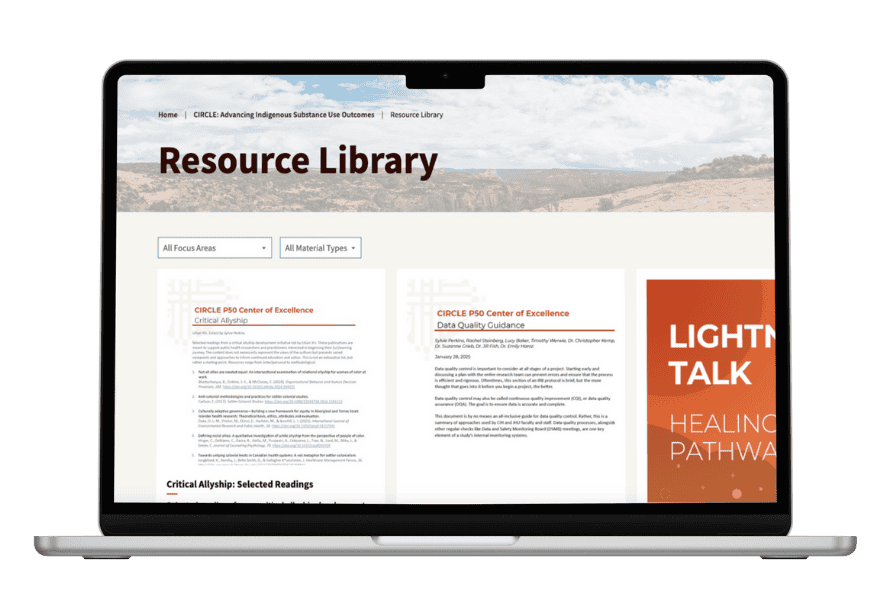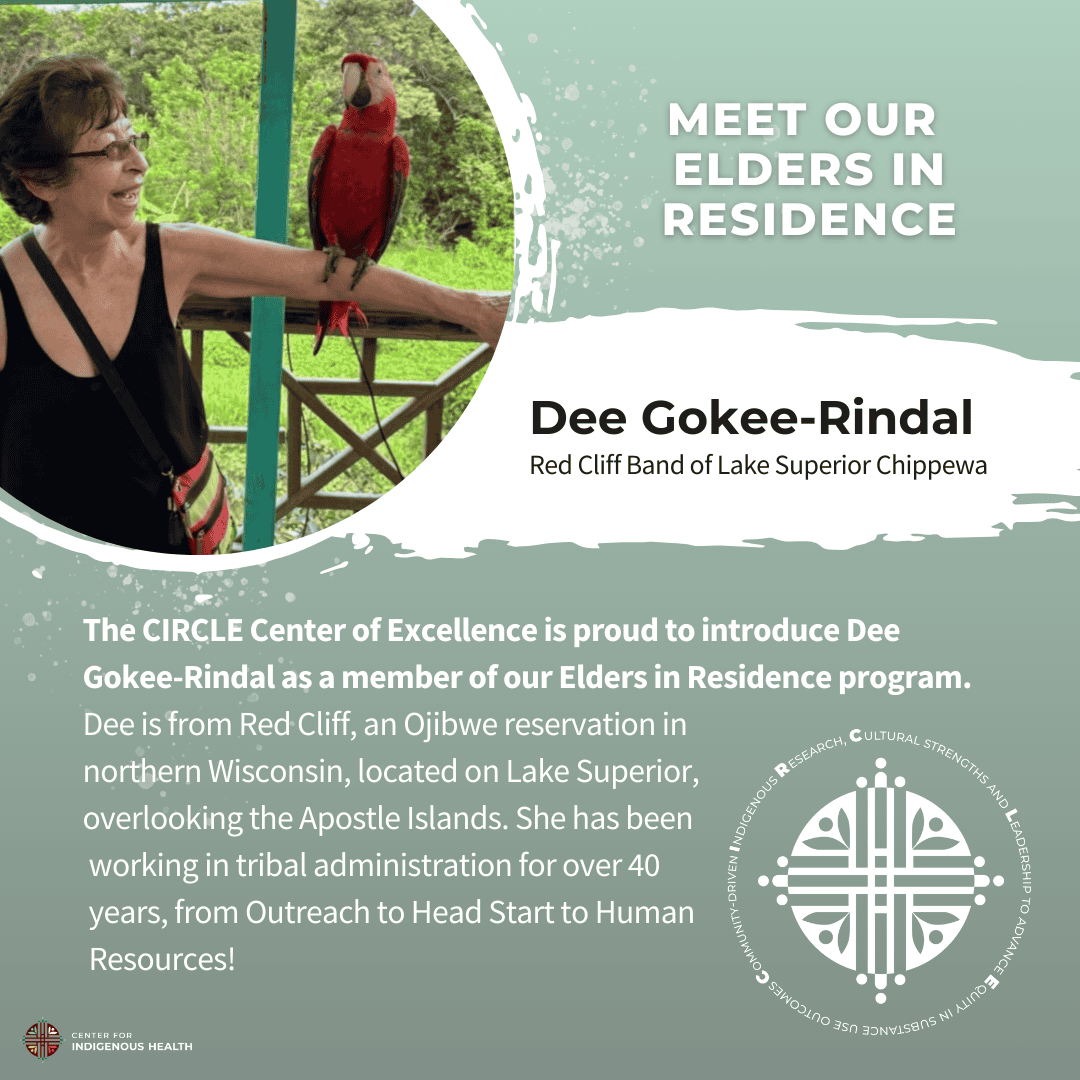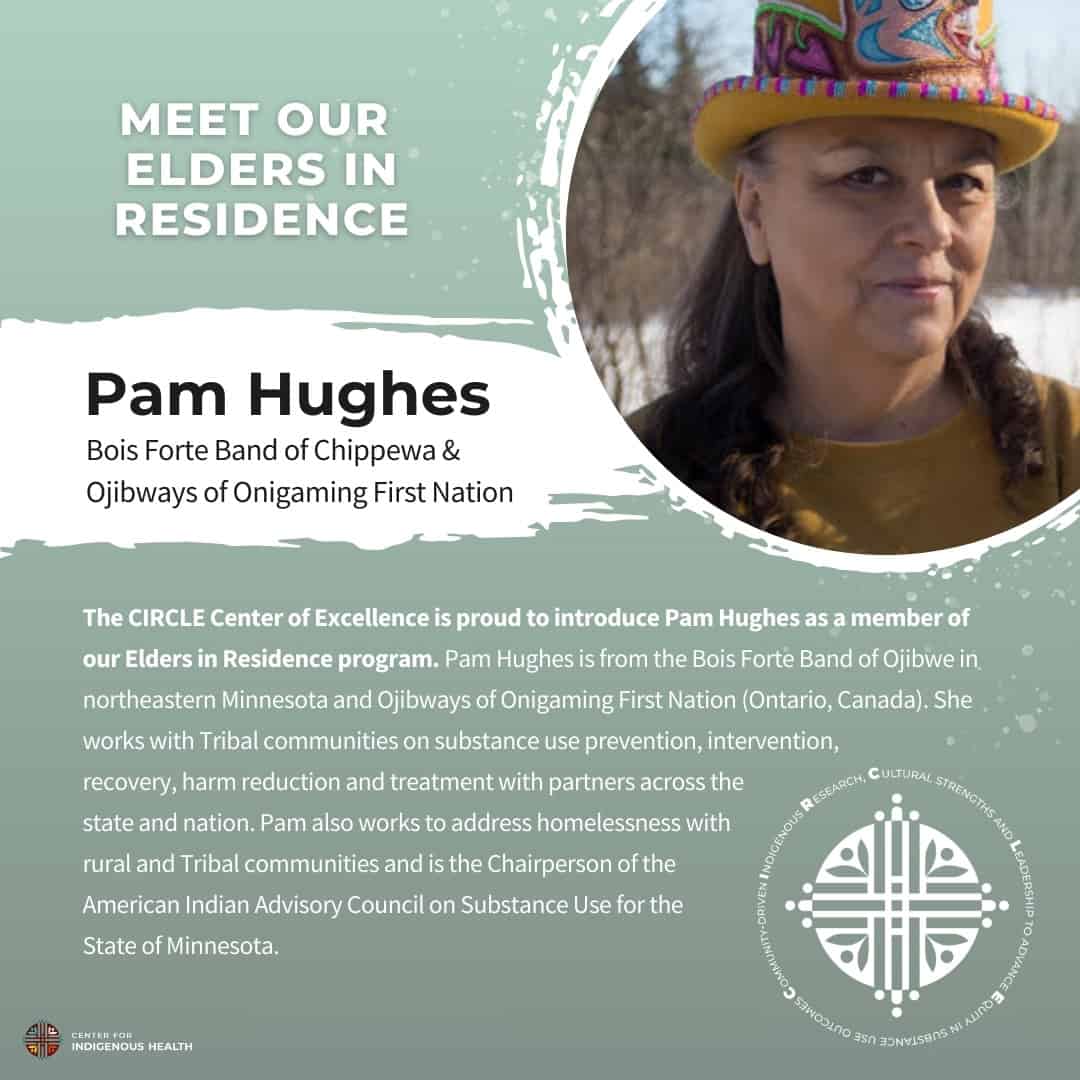CIRCLE: Ending Substance Use Harms
The CIRCLE P50 Center of Excellence is funded by the National Institute On Drug Abuse of the National Institutes of Health, under Award Number P50DA058619.
CIRCLE: Ending Substance Use Harms
The CIRCLE P50 Center of Excellence is funded by the National Institute On Drug Abuse of the National Institutes of Health, under Award Number P50DA058619.

The Center for Innovative Research, Capacity Building and Leadership Development to End Substance Use Harms (CIRCLE) P50 Center of Excellence will address substance use related health problems and deaths in collaboration with American Indian (i.e., Indigenous) communities.
The CIRCLE Center will serve as a national resource and fuel a hub of Indigenous-driven research and training to understand and address substance use inequities across diverse tribal cultures and contexts. Through research, training, and outreach, we will respond to calls from Indigenous Peoples for enhanced focus on recovery, prevention, sources of strength, culture- and family-based approaches to wellness, and policy solutions.
The Johns Hopkins Center for Indigenous Health, along with various Tribal and Urban Native collaborators, received a five-year, $12 million P50 Center of Excellence award from the National Institutes of Health’s National Institute on Drug Abuse under Award Number P50DA058619 to study and create resources for addressing problematic substance use and amplifying existing protective factors in American Indian and Alaska Native (AI/AN) communities.
A goal of the CIRCLE Center and team is to respond to the need for culturally-driven Indigenous substance use prevention programs and policies. Decades of research have failed to address Indigenous substance use inequities in the U.S. AI/AN people experience the highest rates of substance use-related morbidity and mortality of any racial or ethnic group. CIRCLE aims to be a partner with Indigenous communities as they turn the tide by developing novel research methods, implementing a range of innovative research projects, fostering the growth of Indigenous scholars, and creating resources like measurement tools, educational webinars, and online resources to be shared nationally.
Indigenous culture is a profound source of healing and strength already engaged by Indigenous Peoples to prevent and address substance use harms resulting from centuries of historical trauma and oppression associated with colonization. CIRCLE’s Administrative Core, Pilot Project Core, Research Core and Research Projects will serve as resources to build empirical support and understanding for how culture can be used to address substance use in public health research, policy, and practice.

The CIRCLE Resource Library provides a collection of materials to advance substance use research and foster community-centered knowledge-sharing. The library includes interviewing guides, recruitment materials, example resolutions, and CBPR/TBPR resources, each selected to support meaningful action in American Indian/Alaska Native research. These resources are designed to benefit researchers, policymakers, Indigenous communities, and the general public.
Browse the CIRCLE Resource Library here.The CIRCLE P50 Center of Excellence provides support for an Elders in Residence (EIR) program. Such programs are becoming more common in educational institutions across North America (i.e., Turtle Island). These programs help Indigenize the academy, provide culturally appropriate support(s) to Indigenous Peoples and teams, and enhance spiritual and cultural connection. EIR programs also uplift Indigenous perspectives and ways of knowing in modern systems of education and research.
Elders are revered members of Indigenous communities who hold important teachings and wisdom. They frequently promote intergenerational knowledge sharing, provide mentorship and education, and serve as supportive leaders and helpers. CIRCLE takes a flexible approach to programming. Elders in the EIR program will share their preferences and guidance on protocols for seeking their counsel and support. Miigwech/Thank you to our first two Elders, Pamela Hughes and Dee Gokee-Rindal.


Annual CIRCLE Summit
The Inaugural Annual CIRCLE Summit was held in October 2023 at the Johns Hopkins Bloomberg School of Public Health in Baltimore, Maryland, with over 40 attendees from 10 states and at least 9 Tribal Nations. The agenda included:
The 2024 Annual CIRCLE Summit was held in October in Albuquerque, New Mexico. The Summit brought together 57 people from across Turtle Island and featured:
The 2025 Annual CIRCLE Summit was held in Minneapolis, Minnesota. 63 people joined from over 12 Tribal Nations and 10 states and experienced:
With support from CIRCLE, three new studies have been launched, representing partnerships built on decades of collaboration and new partnerships with Tribes and Urban Indian organizations.
Cradling Our Future Long-Term Follow-Up will determine if a culturally tailored, evidence-based early childhood home visiting intervention, Family Spirit®, reduces long-term substance use, suicide, and related consequences among Indigenous mothers and their children 16 years after they completed the program.
Hastiin Bidziil (Strong Man) will determine the effectiveness of a secondary prevention program aimed at reducing substance use among Native men who are 18-26 years of age.
SSP Implementation in Indigenous Communities will explore the factors that facilitated the successful implementation of Indigenous-centered syringe services programs that integrate harm reduction, allopathic “western,” and traditional Indigenous approaches to health and healing.
As part of the CIRCLE Center, the CIRCLE Fellowship will support individuals who are members of a federally recognized tribe and allied new investigators to conduct pilot research on the science of substance use prevention, treatment, and policy in partnership with Indigenous communities. The CIRCLE Fellowship RFP is currently open.
To learn more about the CIRCLE Fellowship, visit the CIRCLE Fellowship homepage.
If you have questions about pilot funding, please visit the CIRCLE Fellowship homepage for more details.
Use the form below to contact CIRCLE Center for general inquiries.